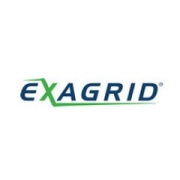Disk Based Backup Systems offer efficient storage solutions by using hard drives for data backups, providing faster recovery times and easier management compared to traditional tape methods.
Disk Based Backup Systems streamline data management processes by reducing the complexity of backup tasks and improving data accessibility. They support a range of storage options, from standalone units to network-attached solutions, catering to diverse organizational needs. These systems are recognized for scalability and convenience, ensuring effective disaster recovery plans.
What are the critical features of Disk Based Backup Systems?In industries like healthcare, finance, and education, Disk Based Backup Systems are used to manage sensitive information, prioritize rapid recovery times, and maintain compliance with data protection regulations. They enable institutions to store large volumes of data securely while ensuring easy access when needed.
Organizations benefit from this method by quickly restoring operations during disruptions, maintaining data integrity, and supporting business continuity efforts.
| Product | Market Share (%) |
|---|---|
| Dell PowerProtect DD (Data Domain) | 39.9% |
| HPE StoreOnce | 39.7% |
| ExaGrid EX | 11.2% |
| Other | 9.200000000000003% |


















Disk Based Backup Systems significantly enhance data recovery speed by allowing direct data access rather than sequentially reading from a tape. This reduction in read times speeds up the recovery process, enabling quick restoration of critical files and applications. These systems integrate with software solutions to provide instant recovery, meaning downtime is minimized, ensuring business continuity is maintained.
What are the cost benefits of using Disk Based Backup Systems?Using Disk Based Backup Systems can be cost-effective because disks offer scalable solutions that adapt to growing data needs without massive upfront investments. They require less physical storage space compared to tape libraries, reducing associated infrastructure and maintenance costs. Disks also allow for deduplication and compression techniques, which optimize storage efficiency and reduce costs related to storage space over time.
Can Disk Based Backup Systems support cloud integration?Disk Based Backup Systems can indeed support cloud integration, offering a hybrid backup solution. This flexibility means data can be backed up locally on disks for quick recovery while also being securely transferred to the cloud for long-term storage and disaster recovery purposes. Such integration offers greater flexibility, scalability, and protects your data against local site failures.
What security features are available in Disk Based Backup Systems?Security is critical in Disk Based Backup Systems, which typically include encryption both at rest and in transit, ensuring data confidentiality and protection against unauthorized access. These systems often provide advanced access controls and authentication protocols. Regular updates and patches further safeguard your data from vulnerabilities and attacks, while integrated monitoring tools help detect and respond to potential threats proactively.
How do Disk Based Backup Systems handle data deduplication?Disk Based Backup Systems excel at data deduplication by applying algorithms that identify and eliminate duplicate data blocks. This process significantly conserves disk space and optimizes storage efficiency by ensuring that each unique data block is stored only once. Effective deduplication reduces the required storage capacity, lowers costs, and simplifies data management, maintaining quick data accessibility and retrieval processes.